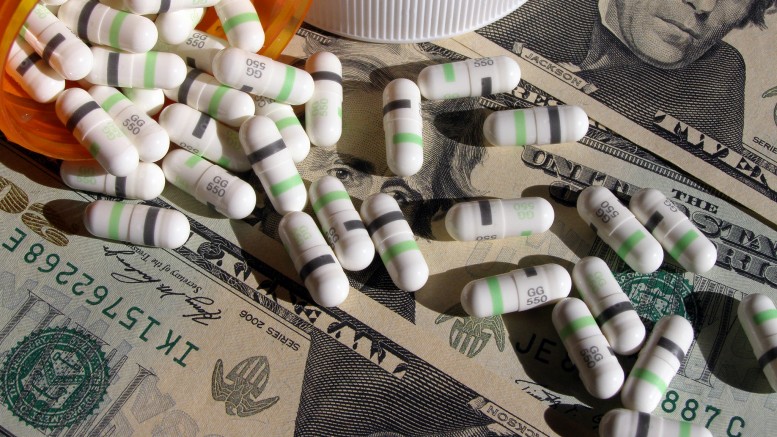On average, 4,500 drugs are recalled by the FDA every year. In many cases, these drugs are widely used to treat serious health conditions before their recall. This leads to the number of people affected by the recall, and any negative effects of the drug, being very high.
Drugs can be recalled for many reasons, ranging from confusing packaging information to deadly side effects. The FDA categorizes recalls as Class I, Class II, and Class III, with Class I being the most serious.
Despite FDA attempts to maintain transparency when recalling products, confusion, and fear often spread due to a lack of definitive information. It does, after all, take time to understand the long-term health effects of a product that’s been recalled.
Meanwhile, affected individuals are left scrambling to make new plans with their doctors, all while nervously waiting for potential side effects to appear.
This is a scary and confusing situation to find yourself in, so let’s take away some of the mystery by taking a look at what happens when a cure becomes a disease.
Dangerous Drug Recalls: What Prompts The FDA To Act
There are five common reasons the FDA will intervene in the medical world. Those are a confirmed risk of contamination, mislabeling, adverse reactions, incorrect potency, or product inefficiency. Based on which issue is causing the problem, and how serious it is, the FDA will issue a Class I, II, or III recall, a market withdrawal, or a medical device safety alert.
- A Class I recall is issued when exposure to the drug will lead to adverse health effects or death.
- A Class II recall is issued when a product is found to have temporary or medically reversible side effects.
- A Class III recall is used when there’s a low, but still present, risk of adverse side effects when using the drug.
- A market withdrawal occurs when a drug violates the FDA rules in a way that isn’t serious enough to warrant a recall.
- A medical device safety alert is issued when using a medical device could have unreasonable safety risks.
Adverse drug reactions cause roughly 100,000 deaths a year. With that in mind, you should always take extreme caution when using any medicine or product that has caused the FDA enough concern to speak out.
Infamous Investigations: Recalls That Made The Headlines
Throughout the years, the medical industry has been shaped by recalls and warnings issued by the FDA.
One of the most infamous cases was that of Thalidomide, a drug marketed to pregnant women to help with morning sickness in the ‘50s and ‘60s. The drug was later found to be responsible for between 10,000 and 20,000 birth defects, and the manufacturer was criminally charged with negligent homicide.
As a result, the Kefauver-Harris drug amendment was enacted by Congress, giving the FDA the power to oversee the manufacturing of drugs.
In more recent times, there was the Zantac recall. Zantac is a drug used to treat heartburn, ulcers, and gastroesophageal reflux disorder. It first became available in the ‘80s and was first recalled in 2019, when it was discovered that the drug contained NDMA.

NDMA is classified as a probable human carcinogen, which means it’s a substance that is known to cause cancer. The recall affected about 15 million people who took the drug in its prescription or over-the-counter form. Since then, the use of Zantac has been linked to stomach, colon, and bladder cancer, among others.
Recalls such as these change the way drugs and other medical products are created and distributed in the U.S., with the goal being to reduce the number of unsafe products on the market.
Emergency Actions: What To Do If Your Medication Is Recalled
Hearing that a medication you take regularly has been recalled is frightening. What are you supposed to do, especially if it’s a prescribed medication that helps you control a major illness?
Here’s how the process works. If the drug has been prescribed to you by your doctor, call them, or your pharmacist, as soon as possible and ask what substitute they can give you.
If the medication is something you’ve bought over the counter, stop taking it at once and consult with a pharmacist about what would be a good replacement.
Ensure that you dispose of your old medicine properly, either by returning it to a pharmacy or mixing it with household trash like kitty litter. Then, remain watchful for any symptoms or side effects listed in the recall.
Remember, most recalls are issued for minor defects, so there usually isn’t a reason to panic.
Costly Consequences: Steps You Can Take If You’ve Become Sick Due To Recalled Drugs
If you’ve become sick due to taking a medication that has been recalled, you may have legal options available to you. For example, if you’ve been diagnosed with cancer and believe that Zantac is a contributing factor, you can contact an injury attorney now to help you learn more about the Zantac cancer lawsuits.
Regardless of what medication caused your illness, you have the right to seek justice and compensation. A lawyer can give you a better chance of success against the big pharmaceutical companies that are liable for your illness.
When choosing a lawyer, look for someone with a proven track record of handling this kind of lawsuit, and who’s well respected in your community. This ensures that they understand the unique state laws that can affect your case. If you’re in Chicago, for example, you need a lawyer who’s permitted to practice in the state of Illinois and has experience in these types of lawsuits.
Dangerous drugs can create side effects that last long beyond their recall date. Now that you know more about what can happen when a cure becomes a disease, you’ll be better prepared to handle the situation if it occurs.
